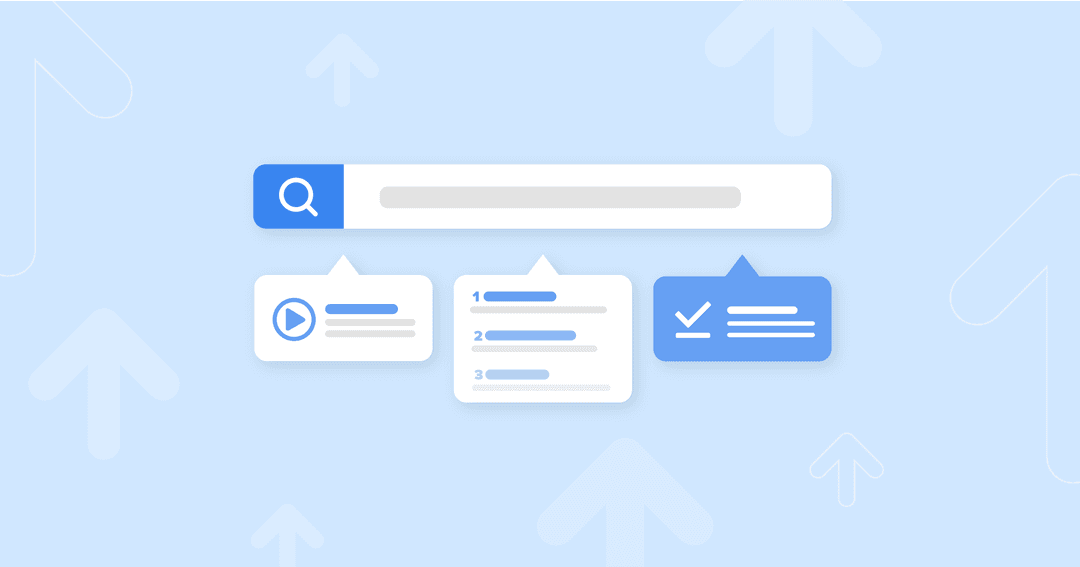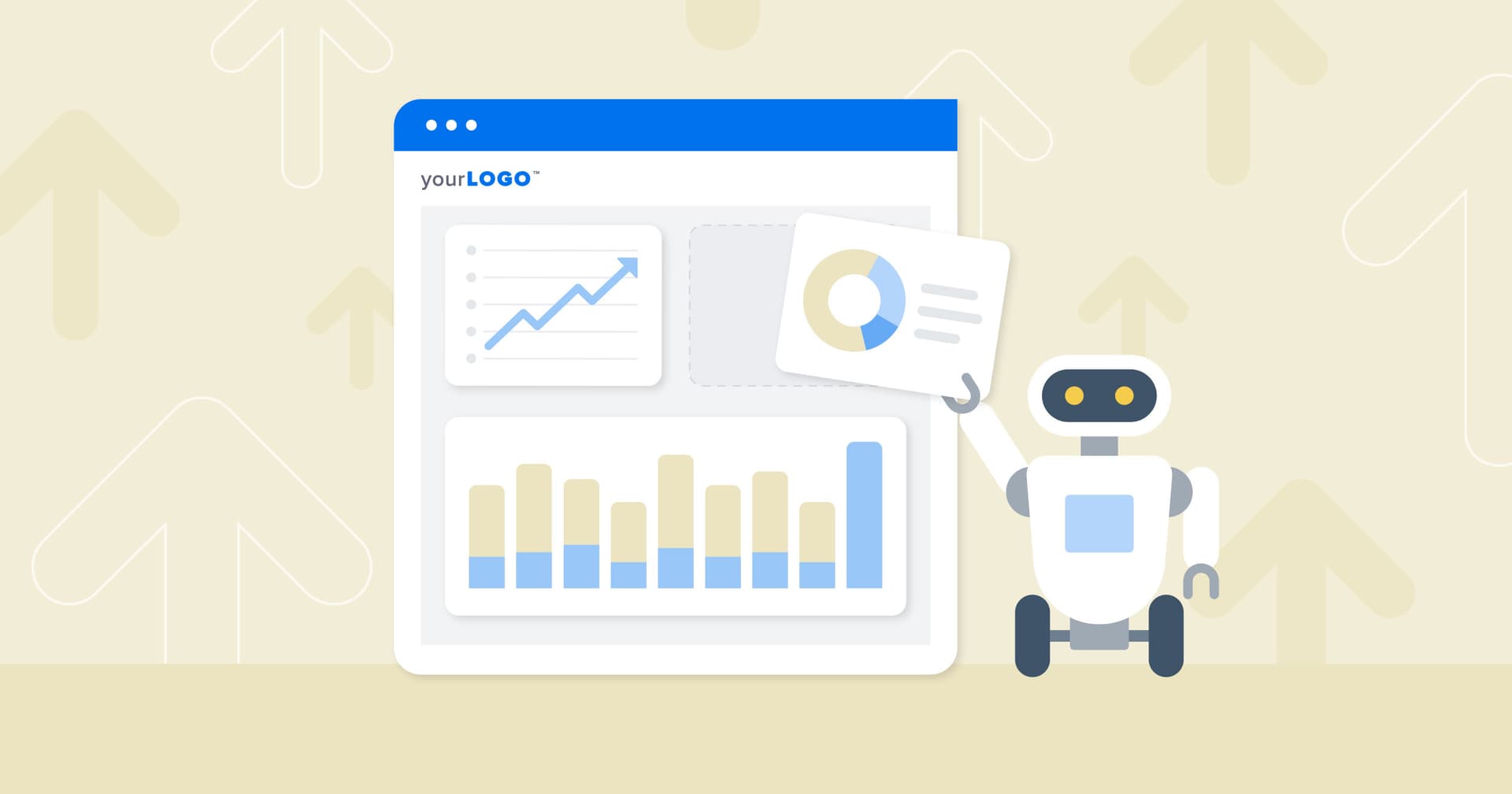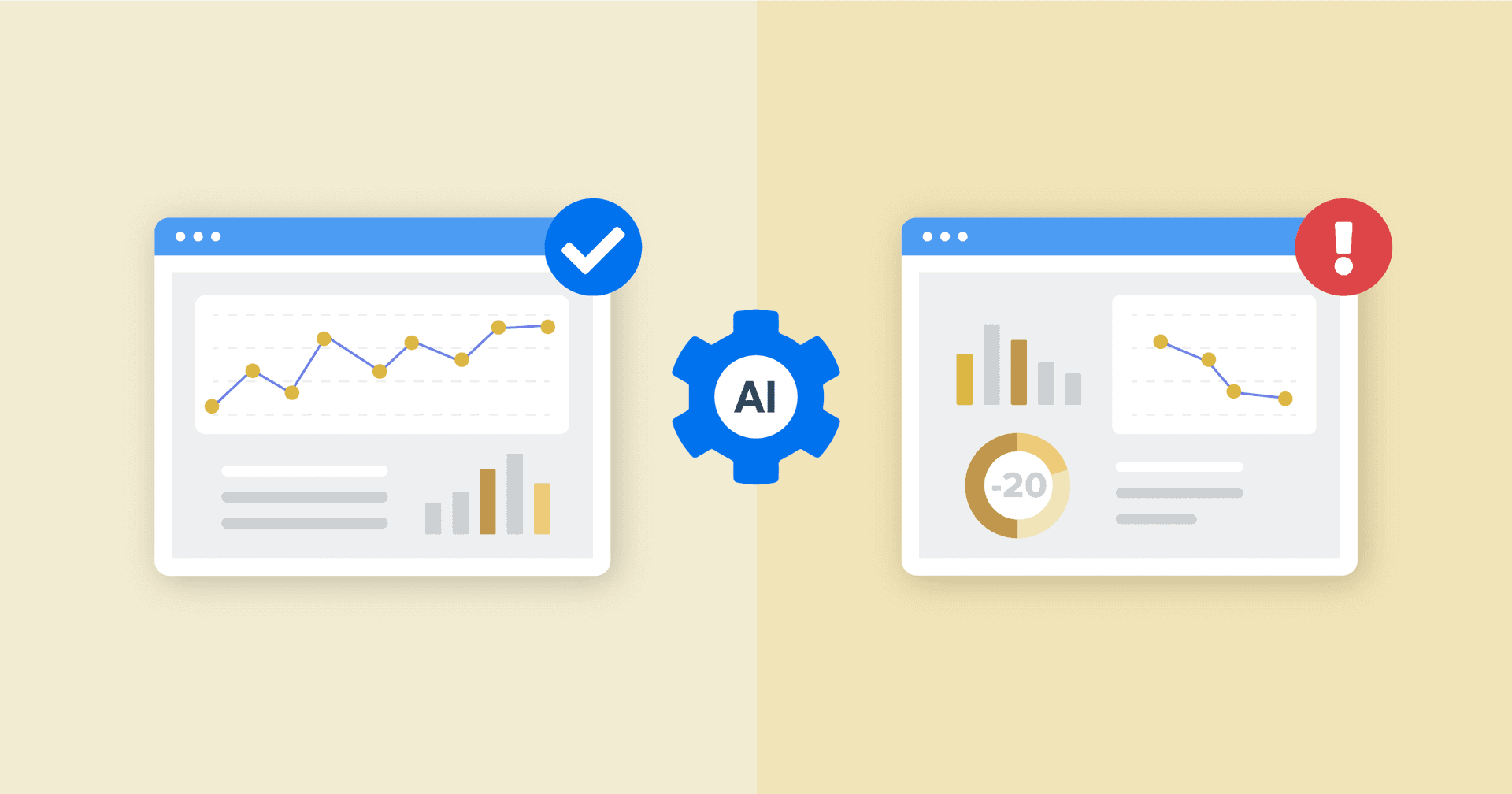Table of Contents
QUICK SUMMARY:
Google recently announced a new generative AI for search feature, powered by its AI model Gemini. This update overhauls how search results are displayed, which now includes AI summaries, AI-organized results, and a video search option. There are major implications for agencies, such as adapting SEO strategies, updating content creation processes, and protecting clients against copyright infringement. This article explains these key developments, along with actionable tips and perspectives from three top agency leaders.
Google’s introduction of generative AI for search comes with major implications for agencies and their clients. It’s changing the way SERPs are displayed and, by extension, clients’ SEO strategies.
From AI-powered overviews to video searches, these new developments will have a trickle-down effect on many parts of your agency’s top-level strategies and day-to-day operations. And to be honest, it’s a lot in a short space of time.
While there’s still a great deal of uncertainty involved, one thing is for sure–power comes from planning ahead. Even if things change down the line, it’s important to put contingencies in place, communicate with clients, and adjust your SEO lens.
Gen AI isn't going away, and putting our heads in the sand won't help. Instead, look at how to use these new tools to create a competitive advantage.
Tim Akers, Founder, Akers Digital
In this article, we’ll explore the impact of generative search AI as it’s viewed today, a few best practices, and how three real-life agencies are adapting to it all.
How Is Google Changing Search Engine Results?
In May 2024, Google introduced a major update to the way SERPs are displayed.
Aside from displaying organic results and paid ads, Google searches will include AI-generated overviews, AI-organized results, and the option to conduct a video search. Essentially, it’s meant to provide useful information in less time.
The emergence of Generative AI in search is both exciting and transformative. It allows searchers to ask more nuanced and conversational questions, similar to having a dialogue with a real person. This shift towards natural language queries means SEO strategies will need to evolve, focusing more on understanding user intent rather than just specific keywords.
Stephan Moerman, Co-founder, Bakklog
Google uses a new Gemini model customized for the search experience to closely mirror natural language. These generative AI features were previously available through Google’s Search Labs to users in selected countries.
Now, it’s being rolled out to all US-based users with plans to expand to other regions in the upcoming months.
Agency Tip: Currently outside of the US? Check the availability of generative AI for search by signing into the Google app and clicking on the Labs icon at the top right corner.
While generative AI for search is an exciting development, it hasn’t always been received with worldwide applause.
For instance, AI-generated content isn’t always accurate or realistic. In some cases, it’s completely fabricated (like fruits ending in “um”) and even dangerous (adding glue to pizza is not a good idea).
It’s especially concerning when these results are displayed as AI overviews at the very top of SERPs, which could mislead users and have catastrophic consequences. There have even been users who wanted to opt out of seeing AI overviews, citing that it’s inaccurate, difficult to disable, and enabled without user permission.
Needless to say, many details still need to be ironed out. Even so, agencies must keep their ears to the ground. Having an in-depth understanding of these new features will help your agency adapt, update existing processes, and ensure steady momentum for client campaigns.
For more context, here’s an overview of the previously mentioned features, along with their implications and what you can do to stay one step ahead.
AI Overviews
Google’s search results will now include AI-generated summaries, which appear at the very top of SERPs.
Similar to using Gemini directly (which is accessible via any personal Google account), AI overviews allow users to customize responses based on length, tone, and content depth.
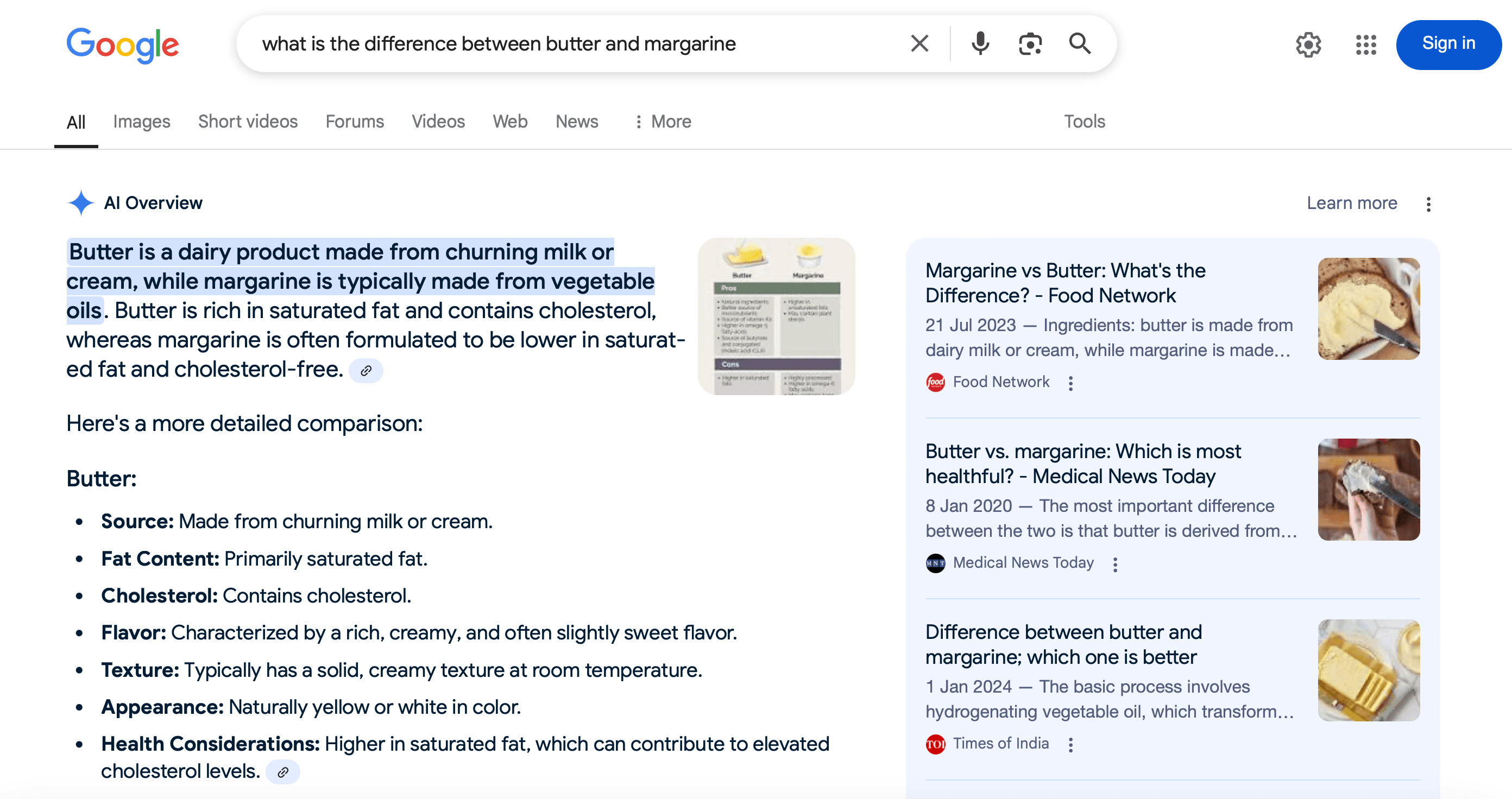
AI-Organized Results
With this new rollout, search results will be automatically categorized based on user intent and content analysis.
This allows easier exploration of broad topics since websites are grouped under relevant AI-generated headlines. Multi-step reasoning and enhanced planning capabilities are also part of this process.
For example, a search for “solo travel ideas” may include related results on “group tours,” “solo-friendly accommodation,” and “solo travel safety tips.” Similarly, a search term like “date night restaurant” may produce locally relevant recommendations or even an AI-produced section like “romantic steakhouses” (like the example below).
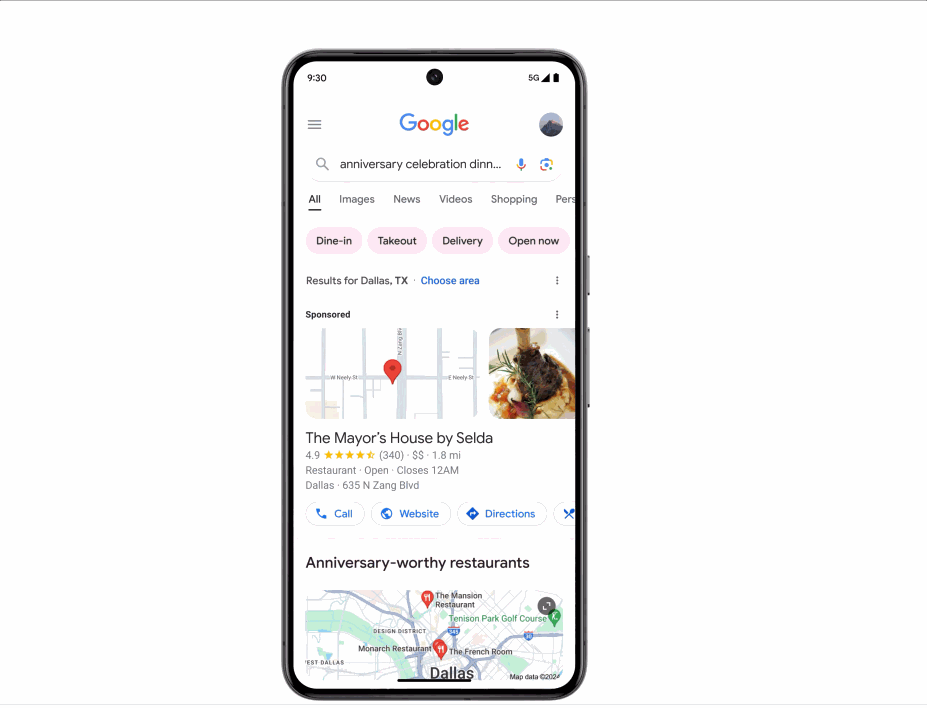
Video Search
Users have the option to conduct a video search via Google Lens. Instead of relying solely on keywords, generative AI analyzes various aspects of an uploaded video (e.g., clothing, objects, scenery).
Based on this, key elements and overall messaging will be extracted from the video. This may result in a couple of outcomes, such as:
Text overlays on an uploaded video for added context.
Search results that are specific to a particular segment in the video.
An AI-generated overview of the video content.
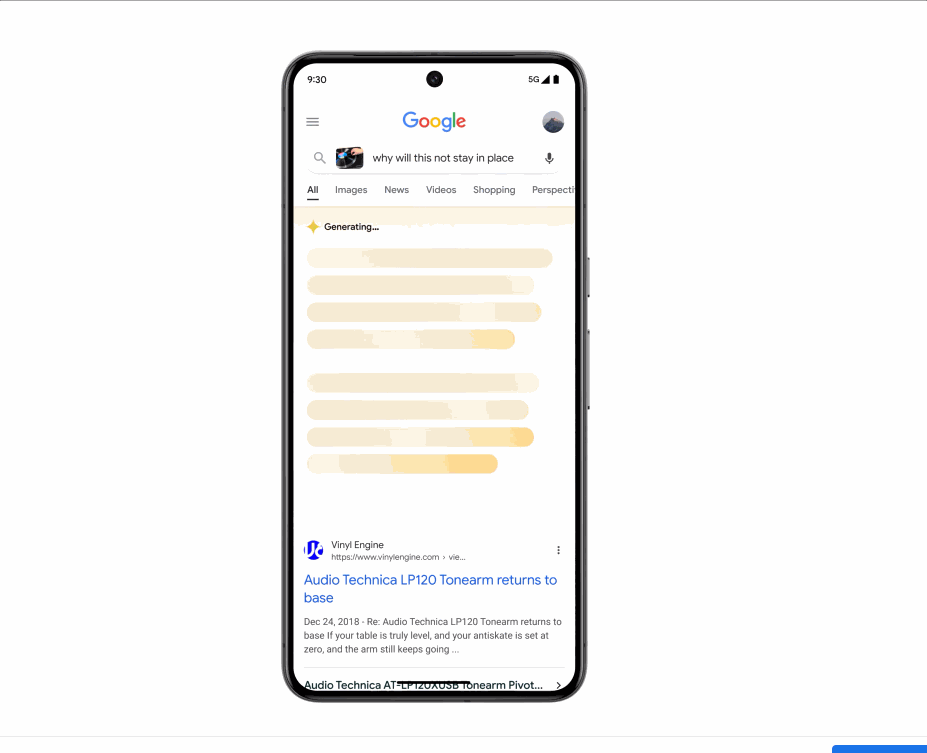
To sum everything up, Google search AI is meant to:
Help Users Grasp Topics Faster. These AI-driven features consolidate insights from multiple sources across the web. That means users don’t always have to delve into heavy research.
Go Beyond Simple Answers. While there are other useful search-related features (like rich snippets and the “People Also Ask” section), generative AI search enables users to uncover new viewpoints and explore follow-up questions.
Save Time and Effort. Google AI aims to streamline the entire search process, allowing users to access quick answers and helpful results.
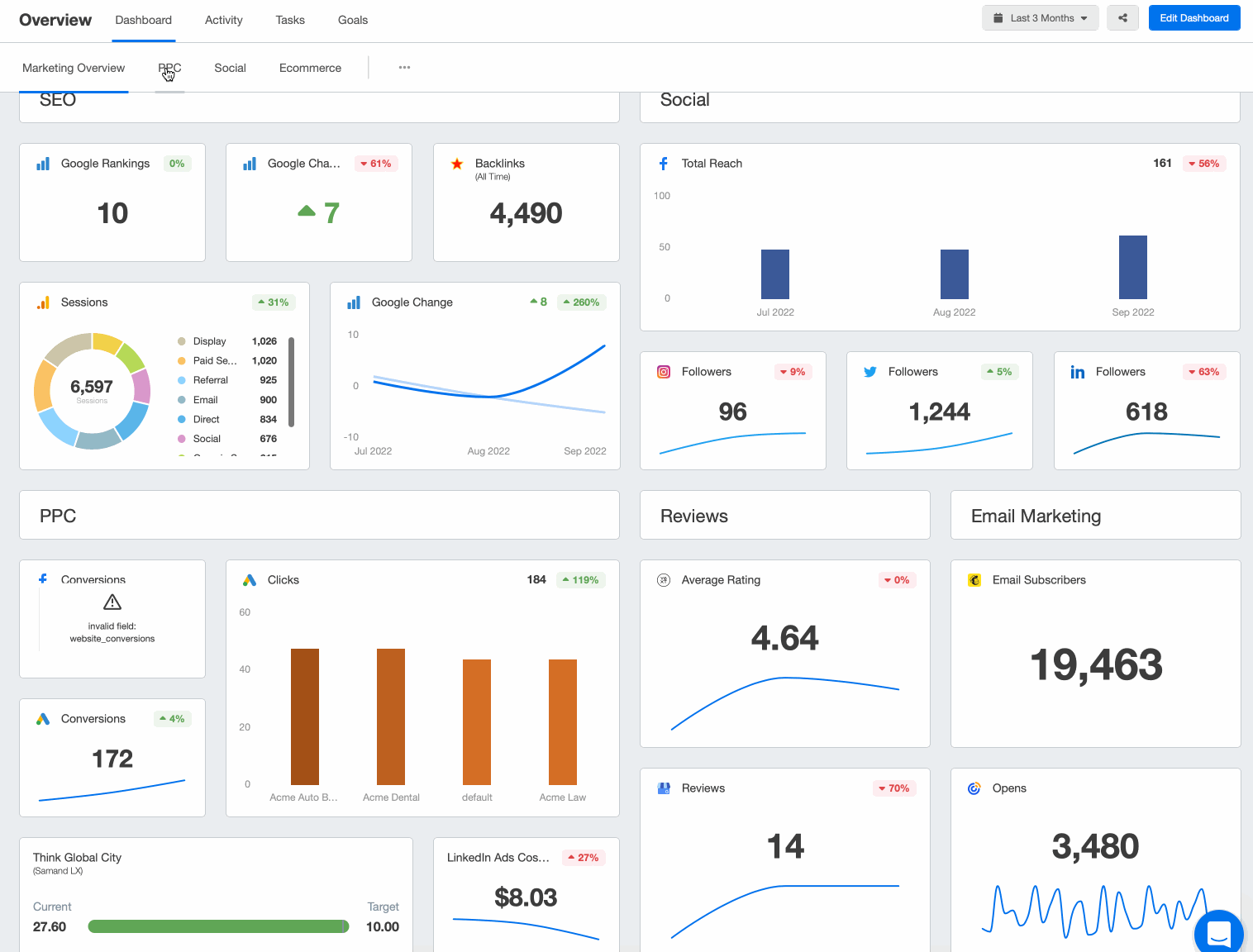
Establish a solid system to monitor client metrics amidst ongoing AI changes. Easily access data across 80+ platforms–try AgencyAnalytics today, free for 14 days.
What Should Marketing Agencies Know About Google AI For Search?
The big ticket question remains–what does this all mean for agencies specifically? Here are a few key points to consider.
Content Should Focus Even More on User Intent
Understanding user intent is the core of any SEO strategy.
That said, the introduction of generative AI for search requires even more focus on the end user instead of creating content for the algorithm.
Adapting to Generative AI in search presents several challenges for agencies. These include overhauling traditional SEO strategies, focusing more on user intent, and considering natural language processing. There is also the challenge of producing higher-quality, in-depth content that meets the sophisticated demands of AI-generated queries.
Stephan Moerman, Co-founder, Bakklog
To improve the chances of showing up on AI-generated search results, here are some actionable pointers:
Focus On Content That Naturally Answers User Inquiries. Break down your client’s content into bite-sized, answer-oriented sections. In other words, think of structuring their work as mini-FAQs that align with user search terms.
Use Diverse Content Formats. Because Generative AI search results are dynamic, focus on creating a variety of content types. It’s also an opportunity to repurpose well-performing content and establish authority for specific topics.
Create Well-Structured Content. Use concise headings that make it easier for users and AI to scan (especially for text-based, long-form content). Where possible, answer complex questions in succinct bullet points or lists. The production of high-quality content may also contribute to AI model training and better results.
Ensure Local SEO Clients Have Google Business Profiles. AI-organized search results may produce a shortlist of relevant local businesses. Therefore, ensure each local SEO client has a well-maintained GBP with up-to-date information. This extra step may lead to increased foot traffic and enhanced domain authority.
Gen AI Has the Risk of Producing Inaccurate Information
While generative AI for search is certainly handy, there are potential hurdles. AI-generated content isn’t always accurate, and sometimes, it’s completely off the mark.
Take the example below–we’re pretty sure eating a rock a day isn’t good for your health.
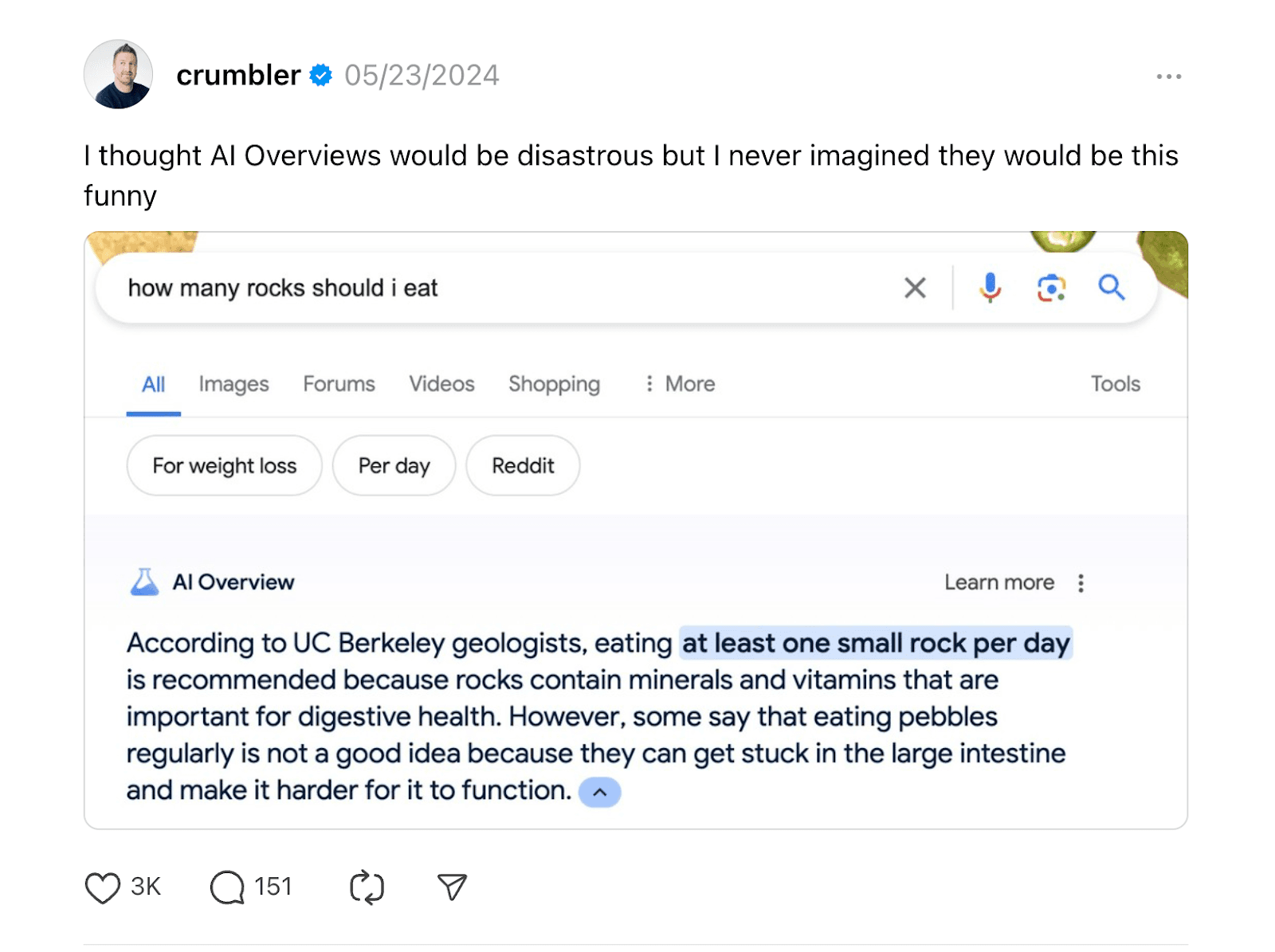
(Fun fact: The above AI overview was based on a parody piece from The Onion).
That’s why agencies must ensure generative search AI is used responsibly. After all, you don’t want to create content that puts a dent in your client’s credibility (or yours).
Be sure to fact-check and use your discretion. If something doesn’t sound correct or plausible… it probably isn’t. At the end of the day, you’re the one with the final say.
Also, there have been previous issues when training AI models, which have resulted in questionable and unfair search outcomes. While Google has previously addressed this issue, it’s something to keep in mind. After all, you don’t want to produce work that’s culturally insensitive or inappropriate.
AI Overviews Will Cite Sources
The top of the SERPs is prime real estate. AI overviews are displayed directly above organic and paid search results, which is the most visible part of the page.
These summaries include cited sources below, which–according to Google’s CEO Sundar Pichai–results in increased clicks for these websites. That said, there’s no guarantee that your client’s website will be referenced in an AI-generated overview since Google automatically determines this.
The good news is that if your agency is accustomed to following Google’s E-E-A-T framework, you’ll already be on track to (hopefully) place client results in AI overviews. Continue to ensure that your agency creates content that demonstrates experience, expertise, authority and trustworthiness.
Further, creating rich content that’s based on first-hand experience helps with achieving favorable results on the SERPs. Rather than producing content that simply regurgitates common knowledge, aim to infuse real stories and insights gained from your client’s unique breadth of expertise. This should make the transition from old-school SEO tactics to the new user-first paradigm much easier.
Possibility of Copyright Infringement
Speaking of citation, AI isn’t perfect–there’s still the real possibility of encountering copyright infringement issues.
For example, one user noted that AI overviews referenced original work without displaying their website link in a prominent search position. There may be major implications in these scenarios, such as a loss of potential referral traffic.
Even though there are ongoing legal developments (like the recent Generative AI Copyright Disclosure Act of 2024), agencies should still monitor for potential issues.
Here are some proactive measures to safeguard your agency and clients:
Establish Clear Licensing Agreements for the Use of Digital Assets. Also, include clauses about unauthorized use and consequences of infringement. Keep an eye out for related material and whether your client’s work has been plagiarized (which is possible given the extensive use of AI for content production).
Include Digital Watermarks on Your Clients’ Assets. Visible or invisible watermarks may help to trace the content origin and provide proof of ownership in case of disputes.
Aside from these preventive measures, ensure your staff is adequately prepared for ongoing AI changes. It doesn’t have to be complicated, either. Explore online resources, tutorials, and news developments–anything to ensure they’re up to date.
AI is moving very quickly. Take a course or two on AI from Coursera and learn how to get started with it. From there, just start small and keep moving and growing.
Tim Akers, Founder, Akers Digital
How 3 Top Agencies Are Adapting to Google’s Generative AI
Who better to discuss adapting to Google AI search than real-life agencies? Here’s what three agency leaders shared about how they’re planning for AI-related changes.
Akers Digital Is Creating an AI Council and Internal Implementation Guidelines
For agencies like Akers Digital, it’s essential to remain open-minded, evaluate internal processes, and have a systematic approach.
That’s why they’re forming an AI council, which functions as an advisory board on AI best practices. It’s a way to maintain visibility on AI-related guidelines, access a range of educated perspectives, and stay one step ahead.
We have developed AI Guidelines and are in the process of creating an AI Council with our clients. Additionally, we are looking at our internal processes to see how we can improve our client outcomes using AI. It’s now a major part of our OKR process. If agencies don't stay up to date, they might be left behind.
Tim Akers, Founder, Akers Digital
Also, Akers Digital has created internal ethical guidelines for AI usage. This document ensures all team members are equipped to make sound, responsible decisions.
Read Their Agency Profile: Marketing For the Outdoor Industry: An Agency Success Story.
Digilatics Focuses on Client Communication, Long-Tail Keywords, and Content Visibility
A key part of navigating AI-related changes is keeping clients in the loop. Understandably, they may experience doubts or even confusion about how generative AI affects their search engine results.
That’s why Digilatics schedules regular agency-client meetings to discuss changes in the search marketing ecosystem, ensuring that clients are adequately informed and their concerns are heard. In addition to discussing deliverable progress and other relevant topics, it’s a forum to provide an extra dose of reassurance.
We've had detailed discussions with our clients during our monthly strategy calls. Most of their initial sentiments were filled with curiosity. They wanted to know how generative AI would impact their visibility on search engines, especially Google.
On our calls, we educate our clients about how we are changing our approach for Google’s SGE (Search Generative Experience), which mostly focuses on creating user-centric, helpful, and up-to-date content. With this transparency, they become reassured that their brands will stay relevant despite the major shift.
Khurram Shahzad, Founder & CEO, Digilatics
Strategy-wise, they’re infusing more long-tail keywords to address user inquiries in a thorough and authoritative way.
To ensure maximum search visibility, Digilatics also checks that content is accessible to Google’s Knowledge Vault. If you haven’t yet heard, it’s an extensive repository that extracts data from web pages, which may be used to train AI models. Therefore, it increases the chances that their clients will be used in AI-generated content.
In this sense, they’ve adopted a twofold approach–one that satisfies algorithm requirements while keeping user intent at the heart of it all.
Read Their Agency Profile: How Digilatics Scaled Their Agency From 1 to 50+ Clients in 3 Years.
Impress clients and save hours with custom, automated reporting.
Join 7,000+ agencies that create reports in under 30 minutes per client using AgencyAnalytics. Get started for free. No credit card required.
Already have an account?
Log in
Bakklog Has Revamped Content Creation and Ensures Staff Is Well-Trained
To help clients succeed amidst these changes, Bakklog has reworked the agency’s entire approach to content creation. Instead of focusing solely on the algorithm, they’re committed to addressing user needs in a comprehensive, engaging way.
More specifically, this involves restructuring existing content for easier readability–both from AI applications and users. Bakklog also prioritizes diverse content types, including in-depth articles, FAQs, videos, and infographics.
We've revamped our content creation processes to focus on producing high-quality, in-depth content that answers user queries comprehensively. This includes incorporating natural language processing (NLP) techniques to ensure our content aligns with how users naturally ask questions. It also means going beyond traditional keyword optimization to analyze what users are truly seeking.
Stephan Moerman, Co-founder, Bakklog
Aside from updating their internal processes, Bakklog also ensures that their team undergoes extensive training on the latest AI developments. Plus, they experiment with new approaches and measure the impact on search performance.
This iterative process helps Bakklog adapt to AI-related changes and optimize campaigns for better results.
Adopt a Proactive Approach and Monitor the Impact of Generative AI
As we’ve covered, generative AI search is an ongoing development. How this information is presented a year from now could be vastly different from what Google is displaying today.
But one thing is relatively certain, from AI-generated overviews to video searches, generative AI search results will significantly affect the entire content creation process.
To sum it up, remember to:
Keep Search Intent at the Forefront. While optimizing for the algorithm is important, it comes down to quality. Generative AI search overviews billions of pages, so ensure your client’s content is well-structured and informative.
Develop Internal AI Guidelines. This will ensure that your staff understands how to use AI tools responsibly.
Protect Your Clients’ Digital Assets. Even though there are developing legal protections, it’s better to be safe than sorry.
Communicate With Your Clients. Keep them posted about any changes to their deliverables, SEO results, and even your agency’s pricing.
During these transitions, data is your agency’s greatest ally. It’s a tangible way to monitor the effect of AI-related changes and whether your client’s strategy is effective.
No need to wing it–invest in an automated client reporting system like AgencyAnalytics. It’s a streamlined way to monitor insights across platforms like Google Analytics, Google Search Console, and Semrush.
While some platforms are working on solely tracking generative AI search results, it’s still handy to monitor all related metrics–like organic traffic and clickthrough rates, to name a few.
Create custom dashboards, share data visualizations, and help clients understand the bigger marketing picture. That way, they’ll have confidence in your agency’s ability to navigate AI-related changes and produce favorable results.
As AI changes the way results are displayed in the SERPs, your reporting game should remain in top form. Track real-time data across 80+ platforms–explore AgencyAnalytics today, it’s free for 14 days.

Written by
Faryal Khan is a multidisciplinary creative with 10+ years of experience in marketing and communications. Drawing on her background in statistics and psychology, she fuses storytelling with data to craft narratives that both inform and inspire.
Read more posts by Faryal KhanSee how 7,000+ marketing agencies help clients win
Free 14-day trial. No credit card required.



